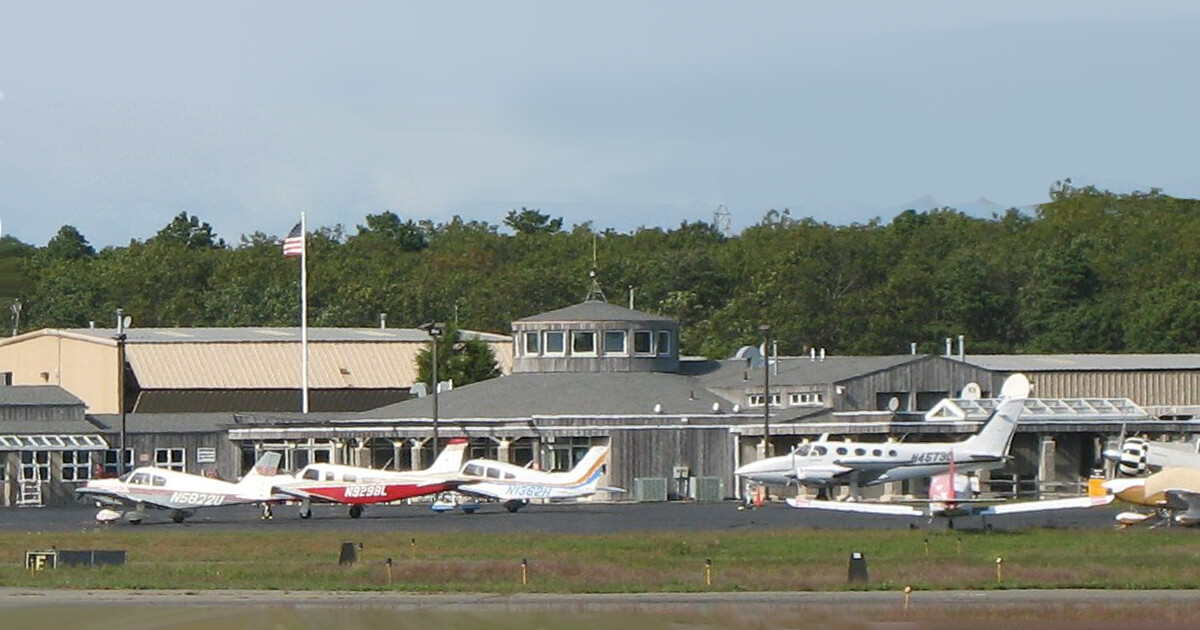
Aug. 5, 2021
NBAA joined with the Helicopter Association International (HAI) and the Eastern Regional Helicopter Council (ERHC) to help convince a federal court to overturn impermissible operational restrictions imposed by the town of East Hampton, NY at East Hampton Airport (HTO).
In a July 30 ruling, Judge Gary R. Brown of the United States Court for the Eastern District of New York issued a temporary restraining order stopping East Hampton from prohibiting the issuance of special visual flight rules (SVFR) clearances by the airport’s control tower. This is not the first time the town has implemented impermissible restrictions at the airport, forcing operators to seek relief through the courts. In 2016, the U.S. Court of Appeals for the Second Circuit struck down three local ordinances which purported to impose a curfew at the airport, an extended curfew on “noisy” aircraft, and frequency restrictions on “noisy” aircraft.
This recent case was filed by Zip Aviation, which operates single-engine helicopters, and which claimed that the SVFR restrictions at HTO – which prevented operators from requesting SVFR when weather conditions otherwise would require to fly using Instrument Flight Rules (IFR) – often barred the company from operating at the airport, because its single-engine rotorcraft cannot be certified for IFR.
NBAA, HAI and ERHC supported Zip’s lawsuit with an amicus curiae brief – also known as a “friend of the court” brief – which provided additional factual and legal information to the court, adding context and reasoning to Zip’s request that the town’s prohibition on SVFR be suspended.
The associations explained that even though the town funds a seasonal tower at HTO, that does not provide the town any authority to control aircraft operations, and thus the prohibition was preempted by the laws and regulations enforced by the FAA.
The associations noted that the FAA, in a recent letter to the airport’s director, chastised HTO for its SVFR restrictions and argued that HTO had no authority to regulate airspace. The brief also noted that the town had responded to the FAA with a refusal to cooperate with the agency’s guidance.
View the FAA’s letter to the airport director.
The amicus brief also argued that two key pieces of legislation – the Airline Deregulation Act of 1978 and the Airport Noise and Capacity Act of 1990, also known as ANCA – were also designed to prevent “the piecemeal disassembly of the national airspace” being attempted at HTO, and further supported Zip’s claims.
Importantly, the associations added, the implications of HTO’s attempt to restrict access – and its assertion that it has authority to decide what aviation operations are safe – could have an insidious impact on the National Airspace System (NAS) as a whole.
“The national implications of HTO’s success would be disastrous for the NAS,” said Jol Silversmith, a partner with the law firm KMA Zuckert, a long-standing member of NBAA’s Access Committee and one of the attorneys representing the associations. “This would set a negative precedent for the entire country. The notion that a local airport can decide what traffic is allowed would be a catastrophe for aviation; each individual airport cannot set its own standards.”
“The aviation community continues its efforts to fly neighborly and reduce the impacts on local communities,” said NBAA director, airports and ground infrastructure, Alex Gertsen. “For decades, the aviation community has worked tirelessly to develop voluntary noise abatement procedures at HTO and in 2021 we have enhanced them even further and are proud to see a very high compliance rate.”
HTO’s federal grant assurances expire in September, providing the town the option to close it. Airport advocates are working tirelessly to preserve the airport which provides a valuable air link to the East End communities and is a significant contributor to the local economy. “We are committed to protecting and maintaining East Hampton Airport as a vibrant and conscientious participant in its community,” Gertsen added.
HTO tower should accept SVFR requests consistent with standard procedures and FAA regulations. The court is expected to hear further argument from Zip Aviation and the town Sept. 29.


 International Business Aviation Council Ltd.
International Business Aviation Council Ltd.